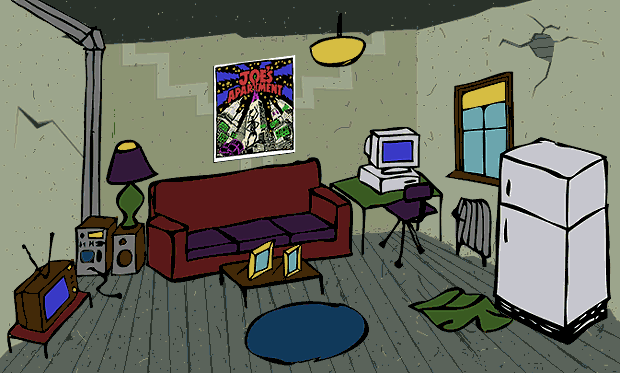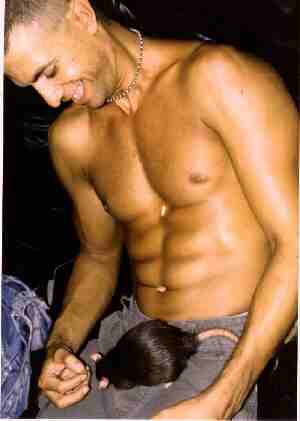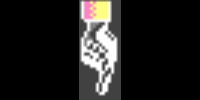For most of the people in the West the war in Yugoslavia started when Serbian president Milosevic enlisted Yugoslav Army to fight against the rest of the country by any means necessary. That's at least when a long columns of weeping refugees and their whispers of rape, loot, murder and medieval sounding mutilations captured the attention of CNN. The war, however, started as soon as Tito died in 1980.
Suddenly the country that was built around his iron fist dictatorial rule was left without its beloved comrade, and its oversized and much too expensive army was left without the supreme commander. Yugoslavia had only one political party (Communist), but it was structured like a federation of six republics, and each republic had its own party leadership. Naturally, those party leaderships began a fierce power struggle for Tito's place. Long before the first shell was fired on Dubrovnik, the war was fought between politicians, journalists, corporate executives and republics' intelligence forces.
I was a journalist, kind of. I wanted to be a rock star. But that didn't work, since my playing sucked. So, the next best thing was to write about rock music. But there were hundreds of other loosers writing about music, and nobody needed one more. Nobody, however at that time in Yugoslavia, wrote about environmental problems and peace movements. I happened to meet Petra Kelly during the height of anti-Pershing missiles protests in Germany and I got my head full of big words worth dying for. The fringe benefit was that I got published. In 1984 I started to produce shows for radio 101 (which was a half-way independent media experiment of Croatian communist party leadership). For about a year I did dozens shows on various environmental, human-rights or anti-military issues, stepping on numerous finely pedicured communist toes. So, at the time they took away my passport and typewriter, I couldn't really tell the reason.
The police said that an article signed by me appeared in the extremist Croatian nationalist publication in Germany. In those times one might be imprisoned for several years at a maximum security prison for a lesser political transgression (a friend of mine got three years for having a Croatian nationalist flag - now a Croatian state flag - hung inside his apartment). They wanted to check if the article was written on my typewriter. Apparently their spies among Croatian emigres obtained a copy. Meanwhile, I never had any contact with nationalist groups abroad. At the 101 radio my friends and me created a weekly talk show that was to serve a contrary purpose: building bridges between young people of different republics.
Tito's death and coincidental collapse of the Soviet Union, marked the end of Yugoslavia's free ride on Western loans. Suddenly, Yugoslavia was faced with an enormous budget deficit, a four digit yearly inflation rate and rapidly plunging real income. For the most of my generation that meant no jobs, living with ones parents up to late forties and virtually never to be able to attain the living standards of our parents or older globe-trotting thirty something siblings. The promise of socialist state didn't hold for us any more. Hopelessness swept Yugoslavia from South to North. Political leadership in republics felt the resentment. They came up with the simplest panacea: nationalism. Although publicly all politicians anywhere in Yugoslavia would still swear upon Tito's "brotherhood and unity", at home they did their best to persuade their people that people from other republics are responsible for all the suffering. That radical shift in ideological fundamentals from anti-nationalism to nationalism first happened in Serbia and Slovenia, which ended up boycotting trade with each other since 1986. I realized that each republic has its own mass media, and that people in one republic have to make a special effort (i.e. go to public libraries) to learn what the people in other republics read, hear or see about them. Our show intended to bring them that other opinions. Instead of forcing a bridge of unity upon them, we wanted to allow them to build the bridge themselves by recognizing the common factors: for example at that time youth anywhere in Yugoslavia accepted rock music as its form of expression. We played a lot of rock music. But the party considered us "too American" for that. They actually decided by then that nationalism is the only way for them to hold on to their power.
| Slovenia as being closest to the West went most radically to adopt certain no-no things like bigger freedom of the press, flirting with multi-partisan politics and free market. It was also the home of some of the Europe's most radical punk bands and the only Yugoslav peace movement at the time. In a hindsight, it was my excitement about "Slovenian model" that enraged Croatian communists to the point that they took away my typewriter and passport, and finally to oust me from the Radio 101. Croatian leadership was playing a game of balance between Slovenia and Serbia, secretly sympathizing with Slovenian achievements while openly expressing disgust with the same achievements in fear of Serbian retaliation. I was perhaps just a small price to pay. |  |
That's how it started. It was even not unusual. Later I met more people whose dreams and lives have been shattered: the police would take their passports away so they could not leave the country, then they'd take away their jobs and means of making money so the victims could not support themselves. Finally victims would turn to their tormentors for help and become snitches or proxies for dirty political games: perfect soldiers of the war that was yet to come. There was never any article written on my typewriter in Croatian nationalist press in Germany. Still, I never got my passport back. I didn't respond well to their intimidation since I had sources of income that were beyond their means of control: Yugoslav ever enlarging black market economy. Actually, sometimes even secret police officers bought prized Deutsche-Marks from me, that's how deeply corrupted the system was.
 | In 1988 I decided to leave the country. It was basically a whim. I was just bored. So, I assembled a ragtag bunch of my Slovenian mountain-climbing friends and persuaded them to show me the way to Austria over the Alps. The trouble was that I couldn't keep my big foul journalist mouth shut, so the Yugoslav Army was waiting for us. Unmarked black helicopters were patrolling over the glacier all they long, and at night border patrols were sweeping the mountain. Fortunately, when they found us, they did not recognize us. The army intelligence failed to update its files on me: they were looking for bespectacled me, and I wore contact lenses. In the same year I had a weird car accident after daring to oppose a group of students from Serbia (basically claiming that Albanians in Kosovo should be subjected to some sort of "final solution") at the meeting of students of humanities in Moscenicka Draga (Istria): somebody cut the screws and one wheel just wheeled of in the middle of highway. Fortunately, I just felt something is going to happen and slowed down a second before it happened. The hate became more serious. |
In 1989, a year before Yugoslav Communist Party federal council collapsed and the federal parliament and presidency plunged in a gridlock that would never be resolved, all republics decided that it is time to build its own nationalist states. Suddenly, numerous nationalist dissidents in Croatia, who would just a year ago be imprisoned for even talking in public, were excessively interviewed, and some of the Serb secret police officers, who formerly interrogated me, humbly asked me if my mother (who is a German citizen) may help them get an asylum in Germany. Actually, I did the first such an interview: interviewing a guy who was a student leader during the Croatian nationalist uprising in 1971. He spent four years in prison, and treated as a second-class citizen ever since. The controversial interview brought mixed reactions: Yugoslav press agency Tanjug called it a nationalist incident but Belgrade independent radio B92 was delighted to stand in my defense; print workers at the newspaper which was supposed to publish the interview refused to print it and declared strike, so the main Croatian communist party controlled newspaper house printed it. The circulation of that issue was four times the usual circulation of that newspaper, plus the interview was reprinted in the next issue. Public was getting hungry for nationalist pride. The funny thing is that at the time I was being investigated for some of my black market scams unrelated to the interview. Yet, the bank was forced to drop its case against me by instructions "from above", as I was told later by the puzzled bank executive. Poor woman was confused with what could a grungy hooligan do to bring such a state security interest behind him. Though, she was happy since she got a job because of me (previous executive was fired for being not willing to cooperate with "greater national interests"). I was surprised, too. I never imagined that the cards would turn that way.
| At least it helped me realize what basic direction did we as a country choose to go: civil war. I decided that I might want to be a witness rather than a participant. I realized that if I stayed I would be torn apart between my friends who would soon start to deeply hate each other. So, I decided that it is time to leave. I obtained a passport by administratively moving my permanent residence to the republic of Slovenia. A chief of police in Ljubljana issued me a passport himself. I got myself a college semester exchange program in the U.S. and was ready to go. One last attempt was made to stop me from leaving: my new passport was stolen in Croatia the next day. Grudgingly, Slovenes issued me another one. For no apparent mechanical reason my car engine broke down on my way back to Croatia in the middle of night at an outside temperature way bellow zero. I was fortunate to hitch a ride to Zagreb that night. I left the country a week after and I never returned. |  |
Unsurprised, a bit blase, I watched the beginning of the so-called all-out-war comfortably from my living room with the rest of America. Television seems to enjoy to bring you the most gruesome details of human behavior around dinner time. A lot of people, particularly Croatian emigres, would ask me if I would go back, presumably to fight for independence and sovereignty (new big words) of my newly assigned country (Croatia). I always had to politely decline such a handsome offer. My war was against the war. It was over for me before the war begun. It was over when I realized that they are really going to do it. I got tired, a bit older and, I guess, a less willing to die for the big words. The war took that innocence away from me.



